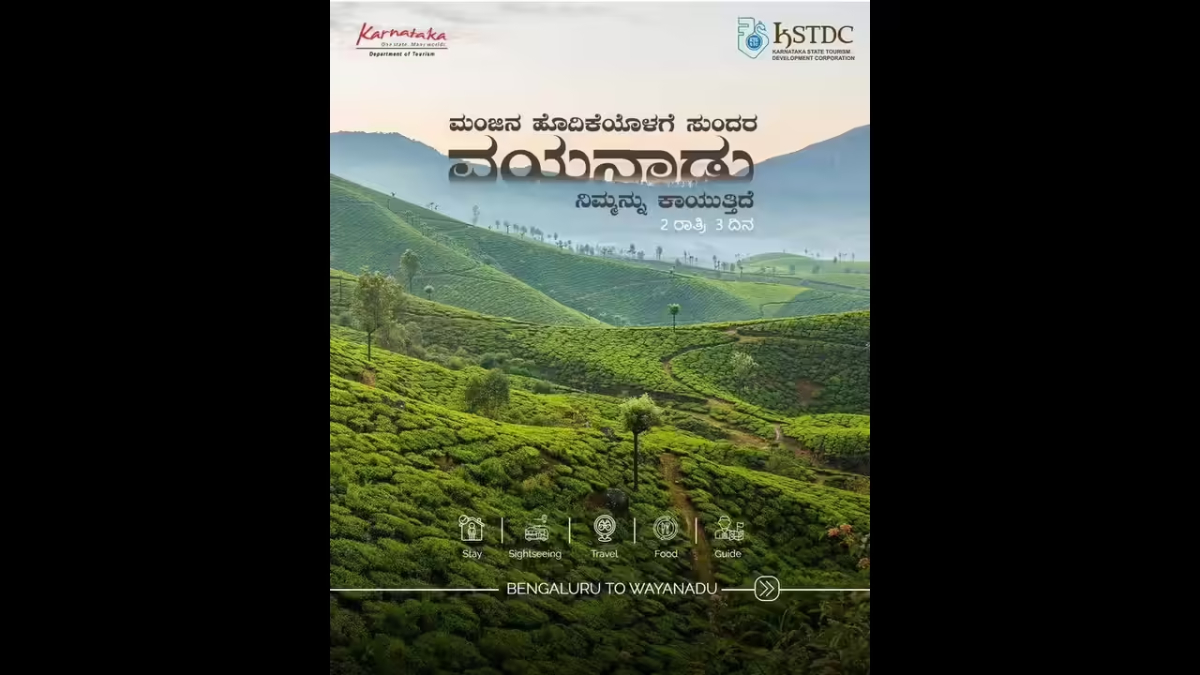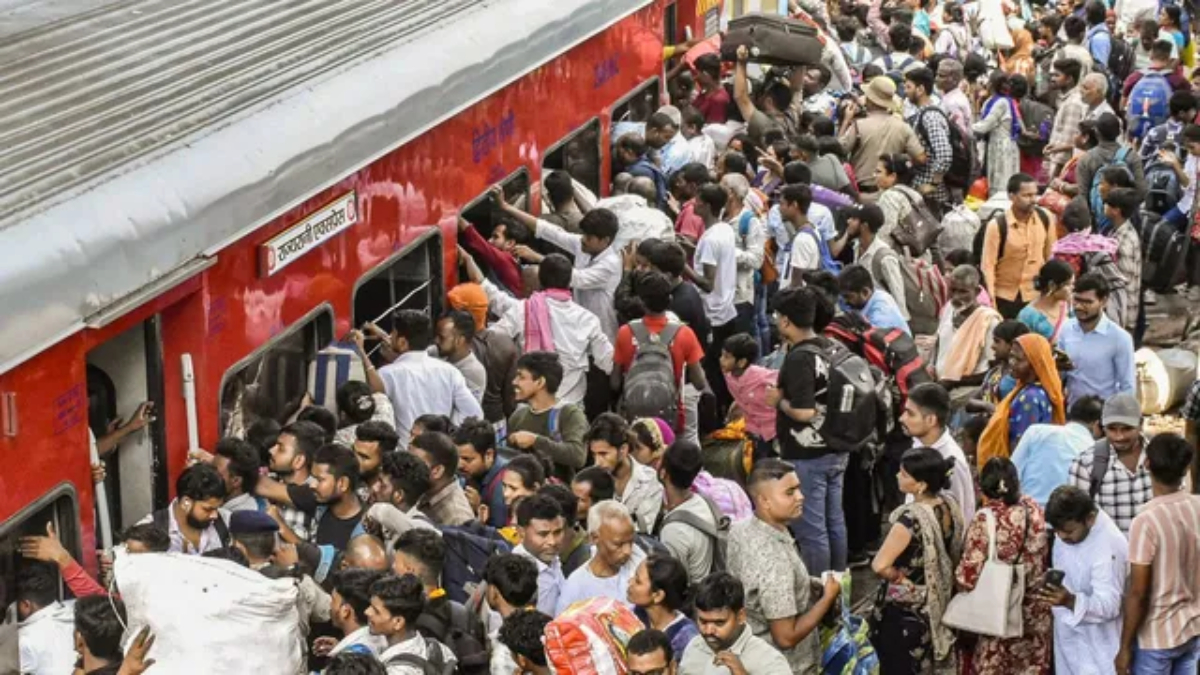Now Reading: Why Promote Kerala: Karnataka Tourism Faces Fire for Viral Wayanad Post
-
01
Why Promote Kerala: Karnataka Tourism Faces Fire for Viral Wayanad Post
Why Promote Kerala: Karnataka Tourism Faces Fire for Viral Wayanad Post

A social media post by the Karnataka State Tourism Development Corporation (KSTDC) promoting a tourist package to Wayanad, a scenic hill station in the neighbouring state of Kerala, has ignited a fierce political and public backlash. The controversial post, featuring the tagline “Wayanad is waiting for you,” quickly went viral, leading to strong objections from Kannada activists, citizens, and the opposition Bharatiya Janata Party (BJP).
The Post That Sparked Outrage
The official KSTDC ‘X’ (formerly Twitter) handle on Tuesday shared an image and caption promoting its two-night and three-day tour package to Wayanad. The post read: “Seeking thrill or tranquillity? Find both in Wayanad! Trek scenic trails, chase waterfalls & meet the wild with KSTDC. Your perfect nature escape awaits.”
The promotion of a destination outside the state by Karnataka’s state tourism body immediately drew criticism. Netizens questioned the logic, asking why the corporation was diverting attention and potential tourism revenue to Kerala when Karnataka boasts several similar, and arguably under-promoted, destinations like Chikkamagaluru, Kodagu (Coorg), and Shivamogga, which also offer lush green hills, waterfalls, and wildlife experiences.
⚔️ Political Accusations of ‘High Command Appeasement’
The controversy took a sharp political turn as opposition leaders, particularly from the BJP, linked the KSTDC’s action to the fact that Wayanad is the parliamentary constituency of senior Congress leader Priyanka Gandhi Vadra.
- Leader of the Opposition in the Assembly, R. Ashoka (BJP), launched a scathing attack on Chief Minister Siddaramaiah, accusing him of acting like “Wayanad’s District Collector and fund raiser” to “appease the High Command.”
- Ashoka highlighted this promotion as part of a pattern, referencing previous decisions by the Karnataka government, including a ₹10 crore grant for Wayanad landslide victims and compensation offered to the family of a man killed by an elephant in Kerala, contrasting this generosity with delays in providing flood and crop loss relief to farmers within Karnataka.
- Another senior BJP leader questioned if the ‘K’ in KSTDC now stood for ‘Kerala,’ suggesting the government was willing to “pawn the honour of Kannada Nadu” to please the national leadership of the Congress party.
KSTDC’s Defence and Public Debate
In response to the mounting criticism, KSTDC officials defended the post, stating that they have a long-standing practice of offering package tours to popular destinations in neighbouring states like Ooty, Tirupati, and Goa for the past two decades. The Wayanad package, according to them, is part of these inter-state initiatives which cater to a demand from tourists in Karnataka.
However, this explanation has done little to quell the public anger. On social media, the debate continues to rage:
- Critics argue that a state tourism body’s primary mandate must be to boost local economy and promote its own attractions before advertising those of a competing state.
- Defenders suggest that tourism should transcend administrative boundaries and that KSTDC, as a travel operator, is simply fulfilling a market demand and generating revenue, which in turn supports its overall operations.
Despite the intense scrutiny and calls to delete the post, the Wayanad promotion remains live on the KSTDC’s social media handles, underscoring a deepening political rift over the state’s tourism priorities.









